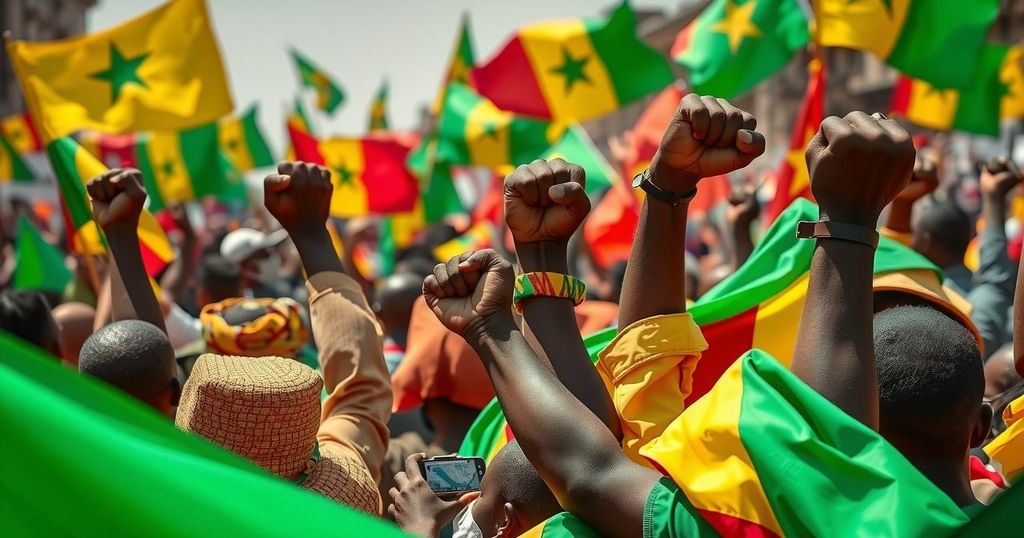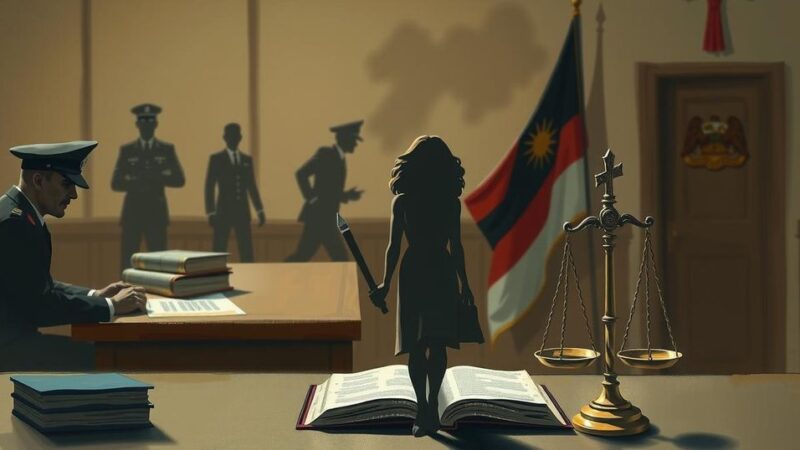In Mali, public protests erupted against Colonel Assimi Goita’s government amid proposals to extend military rule until 2030 and suspend political activities. This growing discontent follows years of unmet promises for elections and rising violence. The military’s hold on power is now under increased scrutiny as the civilian toll mounts, raising questions about the future of governance in Mali.
Protests erupted in Mali on May 3, as citizens gathered in Bamako voicing their dissent against Colonel Assimi Goita’s military government, which is seen as a move too far for many. The gathering reflected growing public anger after officials suggested at a recent national conference that Goita could lead the nation until 2030 while dissolving political parties altogether. This discontent signals a potential turning point for a regime that had enjoyed support until now.
Since seizing power in a coup in 2020, Goita’s government made promises of stability and elections, that now seem broken. The situation concerning civil security has not considerably improved, with reports of violence often coming from government forces themselves. Electoral processes have been delayed, and now a suspension of political activities aims to further cement the military’s power.
Ousmane Diallo, a Sahel researcher at Amnesty International, spoke to Al Jazeera about the shifting sentiments, stating, “For many people, even those who supported the government at first, this is a step too far. They see it as Goita trying to consolidate and hold on to power, and they have resolved to stand against it.”
The protests grew chaotic at the Cultural Palace in Bamako, as government supporters armed with national flags countered the demonstrators. The escalating situation raises concerns of violence reminiscent of previous protests in 2020 when at least 14 individuals lost their lives during government crackdowns. Diallo warns that there could be more unrest, especially if military factions align with the protestors.
The coup in August 2020 was a response to growing frustration with a civilian administration perceived as ineffective against armed groups that have plagued Mali, leading to significant displacement and violence. Early reactions to Goita’s rise to power were largely positive, as many hoped for change after years of suffering under mountainous challenges.
However, Goita’s subsequent actions — including a second coup in May 2021 — have eroded trust. Promises of elections were repeatedly postponed in favor of extending military rule under a new transition plan. Meanwhile, opposition politicians faced arrests and other severe sanctions that curtailed dissent.
Despite Goita’s commitment to restoring order, analysts argue that the prolonged military presence raises questions about the viability of any return to democracy. Countries in the region, like Burkina Faso and Niger, have similarly refused to cooperate with ECOWAS and are now on their own, having formed a separate alliance.
Recent military successes against armed groups in the north, attributed partly to support from Russian mercenaries, have contributed to Goita’s sustained support. Nevertheless, the security situation remains tenuous, with violence still rampant outside major urban areas. Ulf Laessing from the Konrad Adenauer Stiftung points out that the government has urgent challenges in enforcing order throughout the nation as armed groups prove elusive.
While military successes are touted, the consequences for civilian lives cannot be overlooked. Rights groups report numerous instances where civilians, particularly from marginalized ethnic groups, are being targeted for violence or extrajudicial killings by the military and foreign troops. Malian civilians are often caught in a precarious dilemma, facing coercion either to join armed groups or endure brutal crackdowns.
Data from Human Rights Watch indicates that civilian casualties have continued to escalate. Some survivors have fled toward neighboring countries, fearing both governmental forces and foreign fighters. Currently, it is estimated that 3.3 million people are displaced within Mali and the surrounding region due to ongoing violence, sparking urgent humanitarian concerns.
As Mali’s political landscape becomes increasingly intolerant of dissent, the civilian toll mounts. Experts stress that purely militaristic approaches by Goita are likely insufficient for achieving lasting peace. Dialogue may be critical as the situation continues to deteriorate, with ongoing fighting inevitably harming the very citizens these policies are designed to protect.
Public unrest in Mali marks a significant shift against the military government led by Colonel Assimi Goita, who has failed to deliver on promises made after his coup in 2020. Protests signal a rising discontent with the regime’s plans to suspend political activities and extend military control. While military successes against armed groups may bolster support, escalating violence against civilians complicates the situation. Experts suggest that a strictly militaristic approach may no longer suffice, urging the need for dialogue moving forward.
Original Source: www.aljazeera.com






